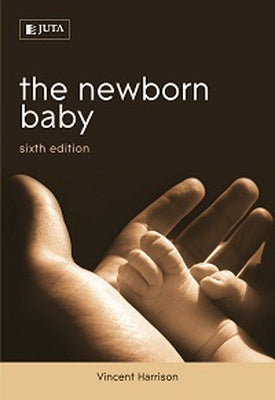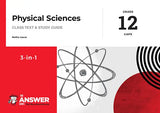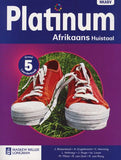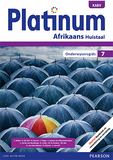
Newborn Baby, The 6th Edition
Product Details:
| Author(s): | Harrison, V |
| Page count: | 416 |
| ISBN: | 9780702197697 |
| Languages(s): | English, |
| Year Published: | 2012 |
| Categories: | Nursing, Academic, Academic, Academic, |
| Type: |
About this publication
The fully-updated sixth edition of this popular and well-established textbook offers nurses, medical students, doctors and other health professionals a method of learning neonatology.
New in this edition
- Explains the latest method of care where a gentle approach is used and the nurse is pivotal.
- Provides the most recent information on infection and notes the reduction of HIV transmission from mother to child. Prolonged breast-feeding is encouraged and several methods of breast milk pasteurisation are described.
- Recommends the latest approach to care of premature infants.
- Provides information on less common disorders and contains updated information on recent gene discoveries, particularly in musculoskeletal and skin disorders.
Content
CHAPTER 1: Perinatal terminology
- The stages of pregnancy
- Perinatal period
- Neonatal period
- Births and deaths
- Mortality rates
- Low birthweight rate
CHAPTER 2: Intrauterine growth and gestational age
- Intrauterine growth
- Prenatal period
- Postnatal period
- Estimation of gestational age
- Before birth
- After birth
CHAPTER 3: The physical examination
- Perinatal information
- Measurements
- Method of examination
- General appearance
- Head
- Face
- Ears
- Nose
- Eyes
- Buccal cavity
- Neck
- Chest
- Cardiovascular system
- Abdomen
- Umbilical cord
- Genitalia
- Anus
- Limbs
- Back
- Hips
- Skin
- Examination of the placenta
CHAPTER 4: Nursery care
- Routine care
- At birth
- After birth – immediate care
- After birth – continuing care
- Accommodation and equipment
- Nursery techniques
- Primary care
- Special care
- Aims
- Transference
- Benefits
CHAPTER 5: Breast-feeding
- Significance
- Promotion
- Structure and function of the breast
- Lactation
- Milk synthesis
- Milk drainage
- Maintenance of lactation
- Techniques of breast-feeding
- Feeding problems
- Milk banking
- Introduction of solids
- Termination of breast-feeding
CHAPTER 6: Artificial feeding
- Composition of cow milk
- Modification of cow milk
- Choice of product
- Preparation of feeds
- At home
- In hospital
- Fluid requirements
- Vitamins and iron
- Feeding techniques
- Weaning
CHAPTER 7: Disorders of maturation, growth and development
- The preterm infant
- Clinical features
- Management
- Body temperature
- Feeding
- Supplements
- Parenteral nutrition
- Prevention of infection
- Complications
- Discharge
- Prognosis
- Summary of essential care for small babies
- The underweight-for-gestation infant
- Intrinsic causes
- Extrinsic factors
- Management
- Prognosis
- The large-for-gestation infant
- Aetiology
- Complications
- Prognosis
- Multiple births
- Twins
- Complications
CHAPTER 8: Infection
- Protection against infection
- Specific factors
- General factors
- Types of infection
- Infections from the mother
- Infections from the birth canal
- Infections from the nursery
- Less common infections
- Isolation
CHAPTER 9: Jaundice
- Bilirubin physiology
- Causes of jaundice
- Clinical presentation of jaundice
- Physiological jaundice
- Pathological jaundice
- Early onset jaundice
- Excessive jaundice (after 36 hours)
- Prolonged jaundice (longer than
- 10 days
- Obstructive jaundice
- The treatment of jaundice
CHAPTER 10: Congenital abnormalities
- Types of abnormalities
- Malformation
- Disruption
- Deformation
- Genetic counselling
- Diagnosis of fetal abnormalities
CHAPTER 11: Neurological disorders
- Neurological examination
- Behaviour
- Motor function
- Reflexes
- Assessment of developmental
- milestones
- Developmental screening for large groups
- Congenital malformations
- Neural tube
- Acute insults to the brain
- Hypoxic-ischaemic encephalopathy
- Periventricular leukomalacia (PVL)
- Cerebral oedema
- Intracranial bleeding
- Septic meningitis
- Seizures
- Birth trauma
- Intracranial bleeding
- Cervical cord
- Peripheral nerves
- Neuromuscular disorders
- The floppy baby
- The jittery baby
- Procedures
- Lumbar puncture
- Ultrasonography
CHAPTER 12: Special sense organ disorders
- Eye
- Sight
- Congenital abnormalities
- Infection
- Retinopathy of prematurity
- Ear
- Hearing
- Congenital abnormalities
- Infection
- Nose
- Smell
- Congenital abnormalities
- Infection
CHAPTER 13: Respiratory disorders
- Physiology of breathing
- Blood–gas exchange
- Oxygen carriage
- Carbon dioxide carriage
- Acid-base balance
- Asphyxia neonatorum
- Experimental asphyxia
- Fetal hypoxaemia
- Assessment of infant at birth
- Resuscitation procedure
- Techniques
- Resuscitation unit
- Respiratory distress
- Specific diseases
- Less common causes of respiratory
- Distress Apnoeic attacks
- Techniques
- Assisted ventilation
- Measurement of oxygen saturation
- (SaO2)
CHAPTER 14: Cardiovascular disorders
- Embryology
- The fetal circulation
- Heart rate and blood pressure
- Presentation of cardiovascular disease
- Congenital heart disease
- Cyanotic heart disease
- Acyanotic heart disease
- Outlook for congenital heart disease
- Other cardiac problems
- Cardiomyopathy
- Persistent pulmonary hypertension
- Cardiac arrhythmias
- Treatment of heart failure
CHAPTER 15: Gastrointestinal disorders
- Physiology
- Stools
- Delay in passing stools
- Diarrhoea
- Constipation
- Vomiting
- Vomiting in the first 24 hours
- Vomiting in the first week
- Vomiting after several weeks
- Blood in vomitus or stool
- Congenital abnormalities
- Branchial disorders
- Disorders of the gut
- Specific abnormalities
- The rectum and anus
- The umbilicus
- Necrotising enterocolitis
- Infections
CHAPTER 16: Blood disorders
- Red blood cells
- Anaemia
- Polycythaemia
- Haemoglobin
- White blood cells
- Bacterial infection
- Other disorders of white cells
- Bleeding disorders
- Haemostasis
- Investigation of a bleeding disorder
- Platelet abnormalities
- Clotting defects
- Collection of blood samples
CHAPTER 17: Urogenital disorders
- Renal physiology
- Urine
- Congenital renal malformations
- Presentation
- Specific malformations
- Urinary tract infection
- Renal vein thrombosis
- Acute renal failure
- Genitalia – male
- Penis
- Testes
- Genitalia – female
- Labia
- Vagina
- Sex differentiation
- Sex development disorders
CHAPTER 18: Skin and tissue disorders
- Epidermis and dermis
- Miscellaneous features
- Congenital abnormalities
- Naevi (birthmarks)
- Vascular anomalies
- Pigmented naevi
- Trauma
- Tissue injuries of the scalp
- Infections
- Intrauterine infection
- Postnatal infection
CHAPTER 19: Metabolic and endocrine system disorders
- Glucose
- Calcium
- Magnesium
- Fluid and electrolyte imbalance
- Thermoregulation
- Inherited metabolic disorders
- Specific metabolic diseases
- Endocrine system
- The adrenal gland
- The thyroid gland
- Thymus and parathyroids
- Infant of a diabetic mother
CHAPTER 20: Musculoskeletal disorders
- Skeletal malformations
- Chondrodystrophies
- Connective tissue disorders
- Limbs
- Digits
- Joints
- Muscles
- Fractures
- Skull
- Limbs
- Infections
CHAPTER 21: Miscellaneous problems
- Crying
- At birth
- After birth
- Pain relief
- Failure to thrive
- Food allergy
- Grief
- Ethical and moral issues
CHAPTER 22: Drugs and dosages
- Drugs given to the pregnant woman
- Drugs excreted in breast milk
- Drugs commonly used
- Method of prescription
- Drug tables
We Also Recommend





